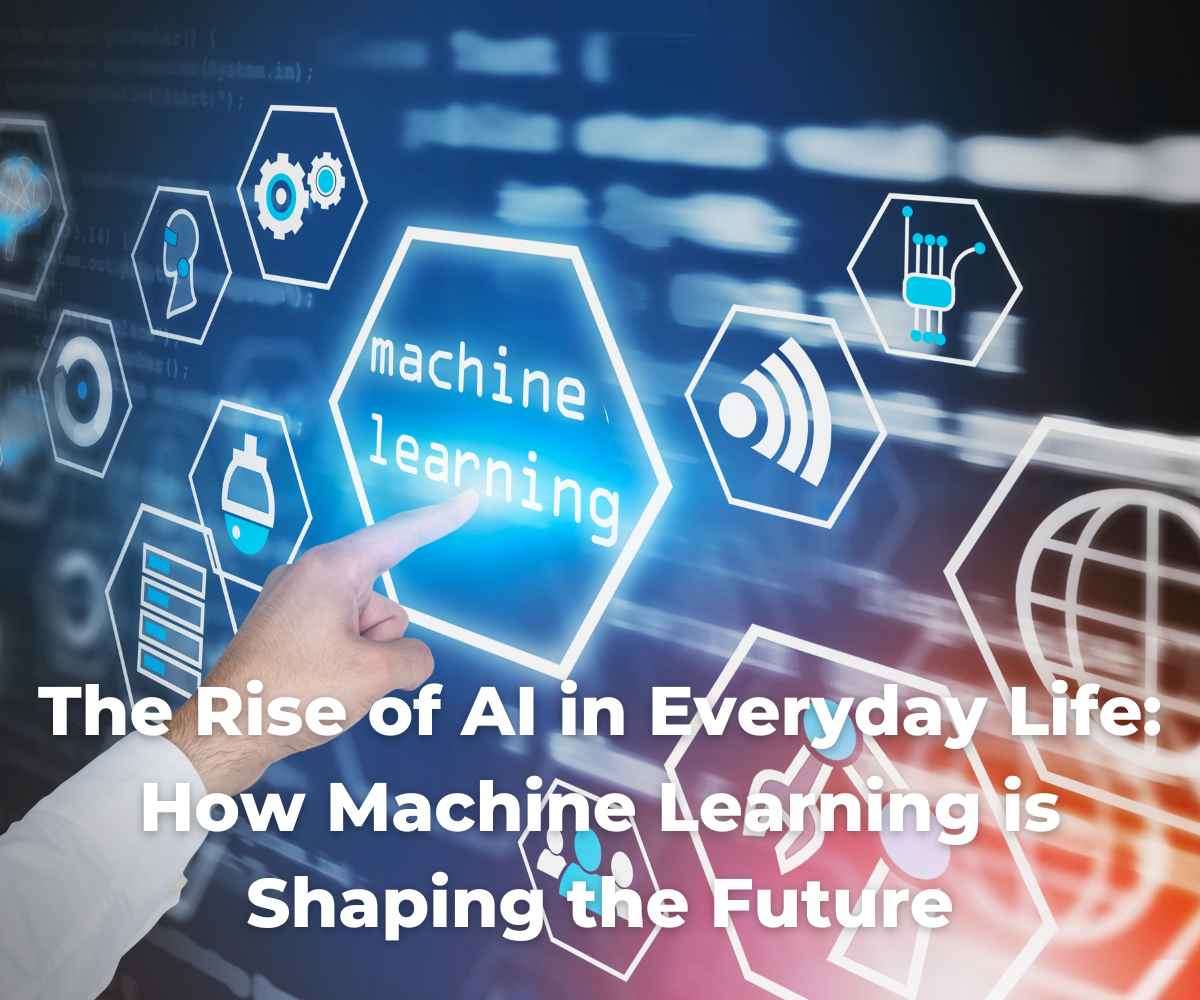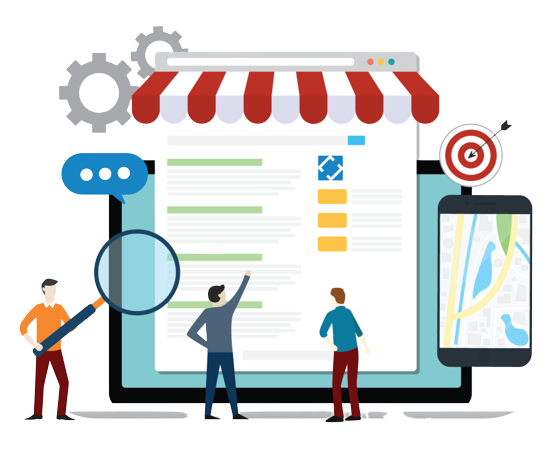
The Rise of AI in Everyday Life: How Machine Learning is Shaping the Future
In recent years, artificial intelligence (AI) has transitioned from the realm of science fiction to an integral part of our daily lives. From virtual assistants to autonomous vehicles, AI is not just a buzzword but a driving force behind transformative changes across various sectors.
This article explores how AI and machine learning are reshaping industries, influencing consumer behavior, and addressing complex global challenges.
AI in Consumer Technology
The most visible impact of AI is in consumer technology. Virtual assistants like Apple's Siri, Google Assistant, and Amazon's Alexa have become household names, providing users with voice-activated convenience.
These AI-driven systems use natural language processing (NLP) to understand and respond to user commands, making it easier to manage tasks, control smart home devices, and access information.
Moreover, recommendation algorithms on streaming platforms such as Netflix and Spotify leverage machine learning to analyze user preferences and behavior. By evaluating viewing history, search queries, and even social media activity, these algorithms suggest content tailored to individual tastes, enhancing user engagement and satisfaction.
AI in Healthcare
Thanks to AI, the healthcare industry is experiencing a revolution. Machine learning algorithms can now analyze medical images with remarkable accuracy, assisting radiologists in detecting conditions like cancer and fractures at earlier stages.
AI-driven diagnostic tools can process vast amounts of data from patient records, genetic information, and clinical studies to provide personalized treatment recommendations.
Additionally, AI is playing a crucial role in drug discovery and development. By analyzing complex biological data, AI can identify potential drug candidates more efficiently than traditional methods.
This accelerates the development of new treatments and helps address pressing health challenges, from rare diseases to pandemic preparedness.
AI in Transportation
Autonomous vehicles are one of the most talked-about applications of AI. Companies like Tesla, Waymo, and Cruise are pushing the boundaries of self-driving technology, aiming to create safer and more efficient transportation systems.
These vehicles use a combination of sensors, cameras, and machine-learning algorithms to navigate roads, avoid obstacles, and make real-time decisions.
In addition to self-driving cars, AI is also transforming public transportation. Intelligent traffic management systems use AI to optimize traffic flow, reduce congestion, and improve the overall efficiency of urban transportation networks.
These systems analyze traffic patterns, weather conditions, and event schedules to make dynamic adjustments in real time.
AI in Business and Finance
Businesses across various sectors are adopting AI to streamline operations and gain a competitive edge. In finance, machine learning algorithms are used for fraud detection, risk management, and algorithmic trading.
AI can analyze financial transactions, identify anomalies, and predict market trends with unprecedented accuracy.
Customer service is another area where AI is making a significant impact. AI-powered chatbots and virtual assistants handle a wide range of customer inquiries, providing instant support and freeing up human agents for more complex issues.
These systems use NLP and sentiment analysis to understand and respond to customer needs effectively.
AI and Privacy Concerns
Despite its benefits, the rise of AI also raises important privacy and ethical concerns. AI systems' extensive collection and analysis of personal data pose risks to individual privacy. Data breaches and misuse of information can have serious consequences, leading to calls for stronger regulations and safeguards.
Additionally, the deployment of AI in decision-making processes, such as hiring and law enforcement, has sparked debates about fairness and bias.
Ensuring that AI systems are transparent, accountable, and free from discriminatory practices is crucial for building trust and promoting ethical use of technology.
The Future of AI
As AI continues to evolve, its potential applications are virtually limitless. Researchers are exploring advancements in general AI, which aims to create systems with human-like cognitive abilities.
This could lead to breakthroughs in areas such as problem-solving, creativity, and emotional intelligence.
Moreover, the integration of AI with other emerging technologies, such as quantum computing and blockchain, promises even greater innovations. These advancements could revolutionize fields ranging from cybersecurity to complex simulations, opening up new possibilities for solving global challenges.
In conclusion, AI is rapidly becoming a cornerstone of modern life, driving progress across diverse fields and industries. While its benefits are substantial, addressing the associated ethical and privacy concerns will be essential for ensuring that AI contributes positively to society.
As we move forward, striking a balance between innovation and responsible use will be key to harnessing the full potential of this transformative technology.

Local Business Listing
Get a PagePromote your business to local customers.
ai In Software
ai in everyday life and how machine learning shaping future
Added On (2024-09-27 11:15)
integrating ai into machine learning frameworks
Added On (2024-01-28 16:31)
nsfw chatbots
Added On (2023-09-05 03:25)
intelligent software in vending machines
Added On (2023-05-28 22:58)
Our Services
* Denotes required fieldsComments :
-

render
1 [2](https://www.google.com/) https://www.google.com/ [3] [Текст посилання](https://www.google.com/ "4") 5 6 [7][1] ... [1]: https://www.google.com/ [8][Google] ... [Google]: https://www.google.com/ 9 \[10\]\(https://www.google.com/ \"Підказка\") [url=https://www.google.com/]11 11 11[/url]
2024-10-15 14:56
-

Lucki
Hey everyone! Very interesting topic, I think AI truly is the future. We're already seeing it used in different industries, for example, in online casinos like Pin Up. The platform, which you can check out at https://pinup-india.bet/ uses AI to improve user experience, offering smooth navigation and personalized game suggestions. What’s cool is that players can explore a variety of games, from slots to sports betting, with real-time updates. It also ensures secure transactions, making it reliable for both new and experienced players. Definitely exciting to see how AI will continue shaping platforms like these in the coming years!
2024-10-15 14:55




GeorgeAdams
Cet article est une véritable ressource pour les parieurs ! Vous avez parfaitement expliqué les différentes stratégies et approches à adopter. Je vais tester vos conseils sur mes paris https://rdc-paris-sportifs.info/tout-ce-quil-est-important-dapprendre-a-propos-de-winner-bet-rdc-inscription-connexion/ sur le basket-ball, le soccer et même les compétitions d’e-sport comme Rocket League et Valorant. Vous avez démystifié beaucoup de concepts que je ne comprenais pas bien, et cela va certainement m’aider à prendre de meilleures décisions à l'avenir.
2024-11-11 08:10